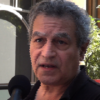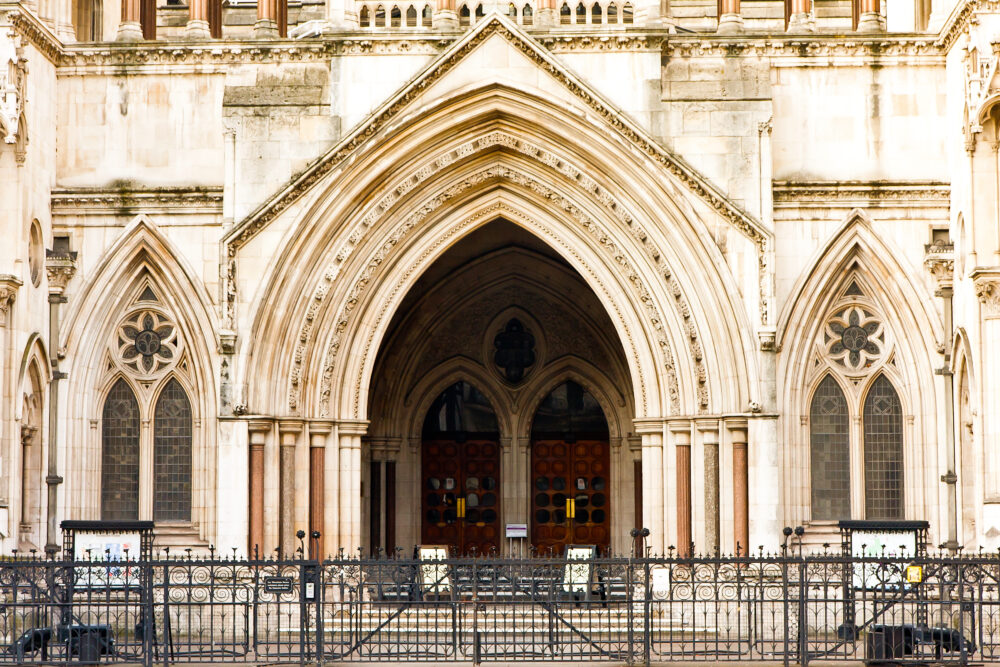Consortium News was virtually “inside” the courtroom at Old Bailey on Thursday observing proceedings by video-link. Today was the last day of testimony. Here is our report for Day Eighteen of Julian Assange’s resumed extradition hearing.
We apologize for this late report as we were unable to access the back end of our site to publish new material for most of the day. Hopefully the issue has been resolved.
By Joe Lauria
Special to Consortium News
 Judge Vanessa Baraitser set judgement day for Jan. 4, 2021 as the last day of testimony in the extradition case of WikiLeaks publisher Julian Assange saw parallels drawn between government misconduct in the cases of Pentagon Papers whistleblower Daniel Ellsberg and Assange.
Judge Vanessa Baraitser set judgement day for Jan. 4, 2021 as the last day of testimony in the extradition case of WikiLeaks publisher Julian Assange saw parallels drawn between government misconduct in the cases of Pentagon Papers whistleblower Daniel Ellsberg and Assange.
In testimony read to the court on Thursday of Prof. Michael Tigar of Duke Law School, the defense sought to show that the kind of abuse of power that resulted in Ellsberg being freed in a 1973 mistrial is closely mirrored by government misdeeds against Assange.
Tigar laid out what happened that forced the Nixon administration, which desperately wanted to punish Ellsberg, to drop his case. Nixon’s “Plumbers” broke into Ellsberg’s psychiatrist’s office trying to steal his medical files; Nixon had Ellsberg illegally wiretapped; the government said it lost the wiretaps when asked to produce them at trial; and the government tried to bribe Ellsberg’s judge with the directorship of the FBI.
Compare that with U.S. intelligence contracting with the Spanish firm UC Global to spy 24/7 on Assange in the Ecuadorian embassy and especially on his privileged conversations with his attorneys; with visiting doctors and journalists; stealing defense documents, and discussing plans to kidnap or poison him.
“That’s essentially the same information that ended my case and confronted Nixon with impeachment, leading to his resignation!,” Ellsberg said in an email. “In other words, Julian may, miraculously, walk free on the basis of this (eventually), just as I did!”
If Baraitser decides not to extradite Assange it would be most likely because of this abuse of power against him, or because of his physical and mental health in the face of a brutal U.S. prison system. In either way she could avoid the highly political issue of espionage in conflict with press freedom.
Testimony read out to the court from Assange lawyer Gareth Pierce explained how his attorneys are still feeling “anxiety” and “fear” about being monitored now. Her testimony also raised the matter of Assange’s belongings at the embassy, including thumb drives and legal documents, being put in a diplomatic pouch and sent to Ecuador and from there, onto the United States. WikiLeaks has not been able to retrieve any of it.
Baraitser Bars Barr
Baraitser said at the outset that in the interests of a speedy hearing, she would listen to everything and decide on admissibility of evidence after the hearing ended. The government has said that the evidence of spying at the embassy was “irrelevant,” a highly questionable assertion, but Baraitser could agree with it.
On Thursday however, she made a decision to reject a new piece of evidence the defense tried to introduce: a statement made by U.S. Attorney General William Barr made on Sept. 15, in which he said that the executive has “virtually unchecked discretion” on the question of whom to prosecute. “Discretion is invested in the executive to determine when to exercise prosecutorial power,” he said.
The defense wanted this in to bolster its argument that the prosecution of Assange is political, thereby barring him from being sent to the States under the terms of the U.S.-UK extradition treaty. Barr’s assertions blow holes in the so-called Chinese Wall separating the White House from the Department of Justice to prevent the politicalization of the law.
Baraitser sustained the prosecution’s objection and barred Barr’s statement as evidence.
Closing Arguments
The defense closing argument will be submitted on Nov. 16 with the prosecution two weeks after that. The defense team said its final submission will cover three areas:
-
Political Motivation. This can include selective prosecution as Assange is being prosecuted for the exact publications as The New York Times, The Guardian other media partners, and Cryptome, which published informants’ names ahead of Assange, but only Assange was charged. Cassandra Fairbanks’ testimony that President Donald Trump ordered Assange’s arrest and Barr’s unitary executive ideas that the president determines prosecutions also makes a case for a political prosecution.
- Abuse of Power. This is clearly seen in the anonymous testimony of the two former UC Global witnesses.
- Cruel and Inhumane Treatment if Extradited. Assange’s medical history combined with the condition of U.S. prisons, the defense argues, would amount to cruelty if he were extradited.
My statement outside the Old Bailey this afternoon at the conclusion of Julian's four-week extradition hearing.#FreeAssange #SaveJulian pic.twitter.com/dNtTibfiyL
— Stella Moris (@StellaMoris1) October 1, 2020
Please Contribute to Consortium News’
25th Anniversary Fall Fund Drive
Donate securely with
Click on ‘Return to PayPal’ here.
Or securely by credit card or check by clicking the red button:






Thank you for keeping me informed. My birthday is on Jan. 4th. and I’m hoping for one great birthday present and that is to see Assange freed.
The Consortium coverage of this travesty of justice against Julian Assange is what will either save freedom of the Press or record its demise.
Thank you for your excellent reporting.
A fantastic job done by all at Consortium news. Shame on the silence of the mainstream press. Free Julian Assange!
AND NOW……
……….we see the sort of offense that is being conducted against a NON US CITIZEN. I think that people in other countries are now seeing what the CRIMINALS within our government are capable of. THESE ARE THE SAME KIND OF PEOPLE WHO CHANTED MANY DECADES AGO ” YA VEE ISS DER MASTER RACE”. Soon they will be burning all of the books they can find. This sort of lunacy is heading for prevalence across America. A national police force will soon emerge which will make Hitler’s Gestapo look like kindergartners
I have been following the trial and am devastated at the evidence of torture of an intelligent person, who revealed crimes of this government. Torturing this man seems to be acceptable to all these prosecutors and judges and other political nobodies.
Do these prosecutors and judges have any idea what it is like to be without any intellectual stimulation for one day? That kind of treatment is not considered torture?
I find it unbelievable that such people are not ashamed of what they are doing , but casually continue talking about it.
I had no idea that people, except murderers and professional torturers, could be so unethical and callous. (I always thought that being educated meant something.)
The mainstream media has reported nothing. Shame on them. (Not that they care. Money talks, that is all. )
The job done by Consortium News, Joe Lauria and Craig Murray is, and has been, so beyond first rate it is in the stratosphere. Perhaps even more importantly, it will be the only real source of this hideous event that historians will have to write of it in the future. You are the last bastion of reality based journalism in English. I applaud you all with great respect.
Great coverage. Thank you.
“To me, it seems much like a show trial.”
Except for one thing. As far as I can tell the main media seems not to show it at all, certainly nothing on CNN international, available where I live.
Seems to be a bad idea for people to know what is going on in these times: the less informed the people are the better.
I have been following the trial here in the UK on Craig Murray’s website. I wish to acknowledge the sterling job he has done. He has given us a lot of detail not reported in the mainstream media. To me, it seems much like a show trial.
Craig Murray has done an excellent job, offering both detail and the advantage of being in the actual courtroom to note tone of voice, facial expressions and other physical indicators. However, Consortium News and Kevin Gosztola, of Shadowproof, have also provided invaluable insights–CN through its reporting integrity, detail, and CN Live guests and panels; Kevin from his insights into the Chelsea Manning backstory, since he was either the only reporter, or one of two reporters, to be present every day of Chelsea’s trial. It’s worthwhile reading all three sources to gain a comprehensive understanding of the testimony so far.